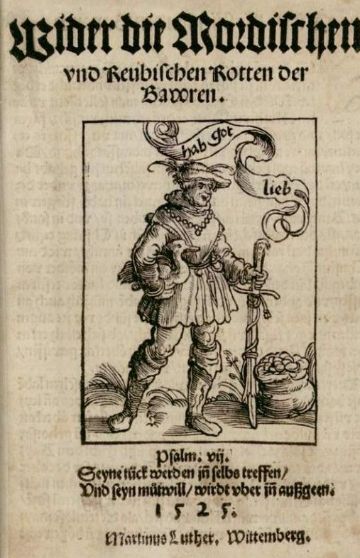Der Bruch - The Split
The growing alienation between the "common man of the street" and the central figures of the Reformation forms one of the great breaking points of this renewal movement.

Martin Luther: Wider die Mordischen und Reubischen Rotten der Bawren (1525).
In the Peasants' War (1525), the rebellion is put down. Anabaptism becomes a rallying point for the disaffected: It attracts people seeking "true Christianity" and more radical reforms.
These people increasingly distance themselves from Luther and Zwingli. Now the term "Anabaptist" emerges. This refers to people who refuse infant baptism and practice believer's baptism in adulthood. Since some people have already been baptized as infants earlier and now decide to be baptized by faith another time, they are also called "rebaptizers" (Anabaptists).
The decisive new element is the conviction that faith and church membership must be voluntary and that freedom of faith and conscience must apply when dealing with the authorities.



